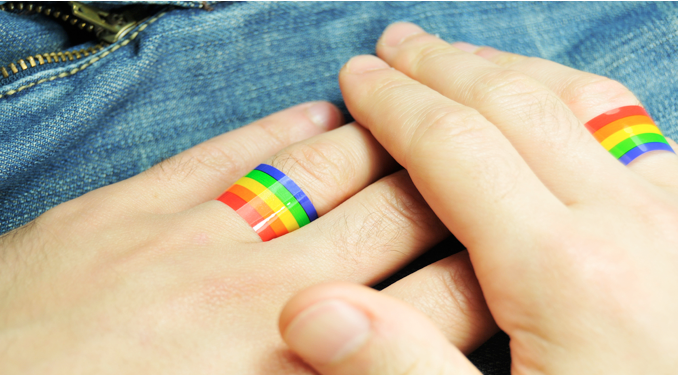CommentsGUEST WORDS--I came out as bisexual to more than 43,300 people last year in a Daily Bruin column. But my parents weren’t among them.
It may be 2016, but it can still be risky for someone to publicly identify as LGBTQ, undocumented or as part of any other marginalized group. And the holidays may be especially difficult for closeted individuals. Even someone who is out to her siblings, but not her parents or the other adults in her life, like me, can struggle.
My internal monologue is always running at family gatherings. I am constantly eyeing everyone in suspicion and worrying that someone might expose my identity. And it doesn’t help that the holidays are painted as a time when families lovingly gather in peace and harmony.
Despite coming out to the UCLA community and receiving support on campus, it is difficult to translate that same support at home. UCLA is a progressive bubble. It is not reflective of the rest of the world, and certainly not reflective of my family.
But it’s precisely this difference in thought we students have to embrace and face. Simply dismissing the other side inflames tensions. And what better time to reach out than the holidays? This is the one time of the year when you are with family and everyone is taking a break from the daily responsibilities of school and work.
This month’s events have brought to the forefront issues of racism, sexism and homophobia that have been quietly simmering. They inflame the hurt of being rejected or only partly tolerated rather than fully accepted by my family. But while we are able to create our own online echo chambers free of triggering ideas from the other side, unfriending your racist and homophobic uncle on Facebook is not likely to keep him away from the Thanksgiving dinner table back home.
Since the first time my tongue slipped and called UCLA “home,” I realized the stark contrast between the definition of the word and the place it represents. Home is a feeling of comfort and acceptance, whereas being home may not elicit those same emotions.
I, like many first-generation students of color, grew up in a pivotal position for an immigrant family. My parents grew up on small ranches in Mexico. They raised cattle and chickens and grew corn to make bread and tortillas. Their life was simplified to homemaking and cleaning for the women, and yard and paid labor work for the men until they each met a partner to have their own children with. This lifestyle they grew up with did not leave much room for experimenting alternative lifestyles, let alone deviating from the patriarchal and heteronormative culture.
My parents never studied past sixth grade. They never went to a university to learn about the things they do not know and they did not have the opportunity to socialize with the diverse set of individuals that colleges bring together. But with the growing visibility of the LGBTQ community, they engage the only way they can: making homophobic jokes – sometimes in front of me.
But this difference in viewpoints is natural. I have met many diverse people, heard from a wide array of speakers and read books that my parents have not. I, like every other Bruin, have been exposed to these differences in thought and have had the had the chance to analyze both sides of the ideological spectrum in a classroom setting. But my parents – and many other students’ – aren’t currently participating in these kinds of discussions, so it’s expected we diverge in opinion.
UCLA is a world all its own, but very few will call it home forever. As students of the country’s most applied-to university, we are put on a pedestal as examples of progressive citizens. And despite how diverse a picture UCLA paints on its brochures, the real test begins the moment you leave campus. The college bubble will eventually give way to the real world full of differing opinions – good and bad – and we need to confront and accept these differences if we are to pay homage to our education.
Whether you’re liberal or conservative, you’ll meet other people with different opinions from yours. And when you graduate, you will continue to be tested on what you have learned at one of the top public universities in the world.
For me, not confronting ideological disagreement with family members would cause them to reject me and my identity. And it’s no surprise that in return, I would reject them, despite my familial ties and everything I learned at UCLA about being a leader. You cannot reject your family during the holidays because of different viewpoints because your family ties and environment are likely to bring you together.
Confrontation does not burn bridges, avoiding it does.
Moral and social progress is not linear or inevitable. It is difficult and daunting. You cannot, and should not, reject those with whom you disagree.
So open up, listen and agree to disagree. ‘Tis the season for family and love, after all.
(Jasmine Aquino posts at The Daily Bruin … where this perspective was first published.)
-cw
Sidebar
Our mission is to promote and facilitate civic engagement and neighborhood empowerment, and to hold area government and its politicians accountable.

 CityWatch Los Angeles
Politics. Perspective. Participation.
CityWatch Los Angeles
Politics. Perspective. Participation.
21
Sat, Feb














